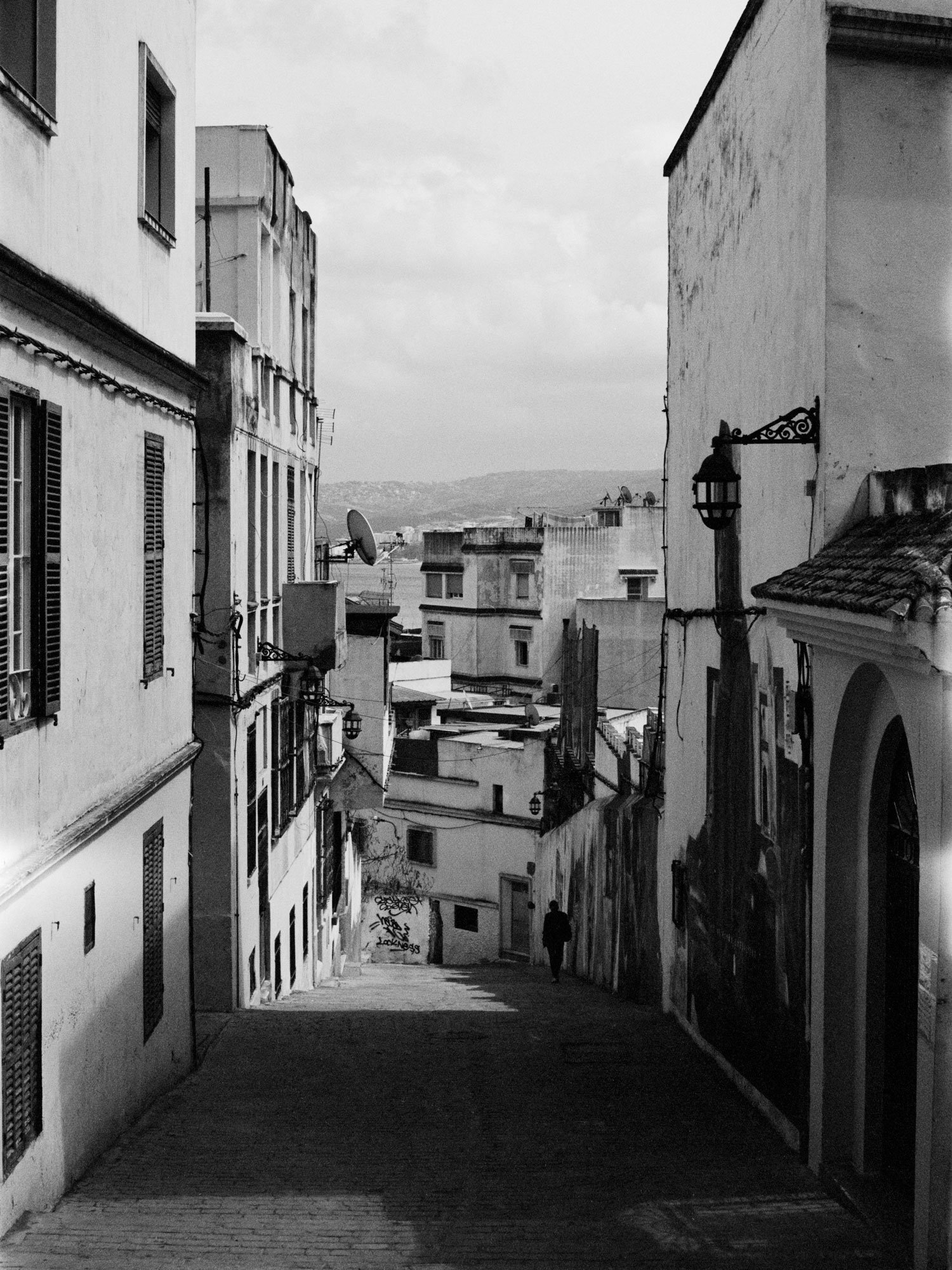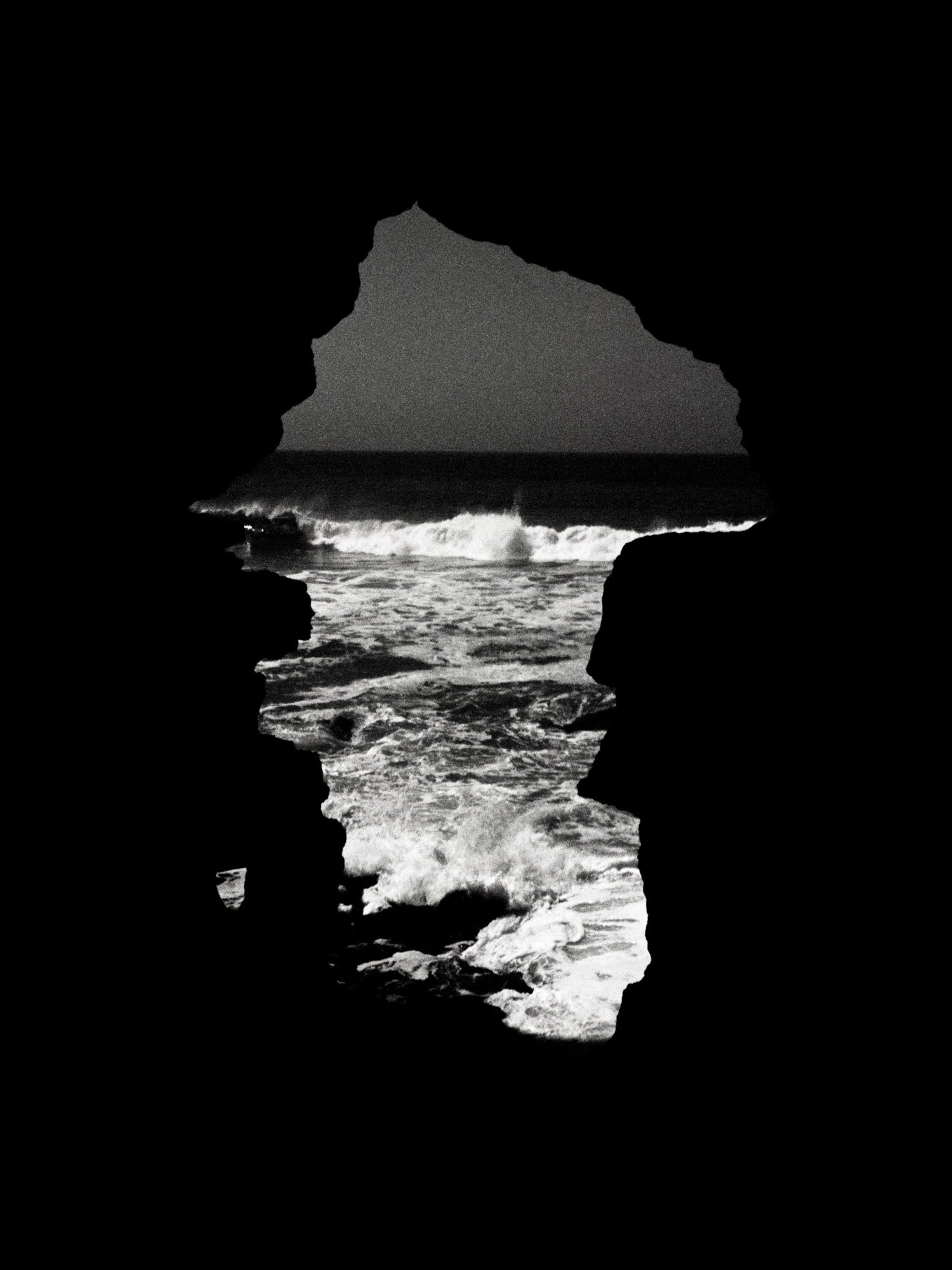First published in Sojournal, in 2023. This edition includes a few amendments.
I was in Tangier only briefly, and as one with nowhere to be, nowhere to go, no one to meet, I chose the path of the flâneur. I woke early and, after a breakfast of breads, yogurt, tea, fried egg, banana, and olives, set out to wander. Few were about and none in a hurry. It was the custom here to wake as near the noon prayer as possible, and, once awake, to go about business with a deliberate, unperturbed patience. Such patience meant that unlike in the tourist favorites to the south few salesmen—only ever men—solicited me here. I may have been an obvious foreigner, but I was unimportant and that was good. I wandered unbothered through the medina and the chalk-white alleys of the old Kasbah until I reached a view overlooking the bay. The sea smelled fresh and cut coolly the humidity of a summer that did not yet want to end.
Just as many succumb to the calm temptation of Caribbean beaches, I fell victim to the grunge of Tangier. I was biased, I admit. Here had lived authors and artists and musicians whose works I had read, watched, heard, and I wanted to find what siren had called so many to so dirty a place. Tangier is not an attractive city, but it is seductive. Its rhythms are articulate, consistent, sometimes even boring, but its meter remains elusive and its melody fugitive. I listened for this secret tune from the Gran Café de Paris, sipping nous nous and watching people pass along Pasteur Boulevard in no hurry. I looked, my gaze lingered, but my own restlessness won and I rejoined those who were watched, impassively and with disinterest, and strolled my way through the crowds. Later I ate dinner at Chez Hassan’s, a small restaurant near my hotel whose four tight tables spilled onto the sidewalk of the Rue d’Italia not far from the old Cine Alcazar. I sat across from an old Frenchman and beside an American. We all three picked at our assorted olives while Hassan and his brother cooked the meats and fish. The Frenchman, who spoke a little more English than we did French, said he had returned from his homeland to find again permanent residence. France, he said, was not for him. He ate at Chez Hassan’s every night, always around seven and always in the same black, loosely-buttoned shirt.

Toward sunset I walked to the Phoenician tombs—a carved outcropping overlooking the Strait of Gibraltar—and watched the sun’s final glow with a crowd mostly of locals. A street vendor up the unmarked gravel path was selling snails. I wanted to try some but he seemed as unpractised in English as I am in Arabic, so I shied from the embarrassment. Instead, I took a brief detour into the Marshan, where Tangier’s roads disappear into the quieting expanse of Africa. On my way back, I fell into conversation with fellow tourists who were headed to the rooftop of a Medina hostel—a rooftop with a view of rooftops. Hash, grown in the north and legal for only Moroccans, passed foreign hands while an Austrian-Russian in hippie getup bragged of his tax-evasive apartments. We gossiped and traded stories, as is the custom among tourists who share no interest in each other beyond the tales of their conquests. Though I relished company that understood me, none here understood what I sought. They had not come for Tangier; for them, Tangier was only a comma far from the end of a sentence. I walked home that night around one in the cool morning after drinks with a newfound friend in one of the city’s unadvertised bars. A barbershop was still open and the barber still trimming a customer’s beard.


The next day I escaped the city for the Cave of Hercules, whose opening mirrors the whole of Africa. My taxi passed sweet-scented forests, guarded walls of African kings’ holiday compounds, and the far reaches of the growing city, whose tall buildings rose like plastic hotels from a flat, brown desert. We stopped at Cap Spartel, where sea becomes ocean, and my driver bought coffee from a man with a kettle wired to a stove. My driver insisted I have one too. I refused, but he split the difference into a second glass he conveniently had in his taxi’s cupholders—shaped specifically for these smaller Moroccan-style glasses. To the cave we drove, sipping the sweetened, hot coffee. It was a pleasant drive, windows down, and my driver promised to wait near the cave for as long as I wanted. Outside its entrance were a small row of shops and a canopy to provide shelter from the sky. White, concrete steps shattered upon an untamed coast where couples took photos and waves pressed upon the rock. The sun was bright, and I had time to think.
Had I stayed longer, Tangier would have turned into just another city, busy and taxing and noisy and regular, but my stay was brief and my sight unsullied by the tedium of routine. Someday it must rain—it always does—but for now the sunshine sees no end.